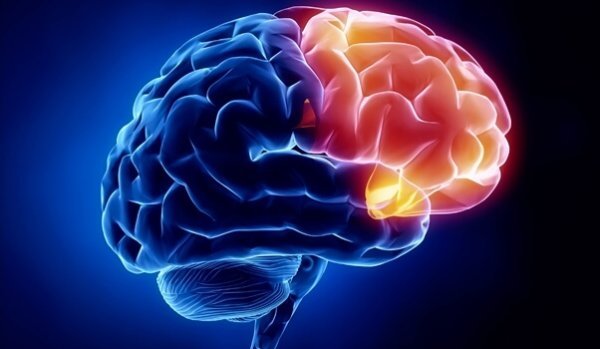Learn about the Guilt Area of the Brain


Written and verified by the psychologist Valeria Sabater
The guilt area of the brain is related to shame in a very intimate way. However, it’s been proven that these areas don’t activate in certain people. Not surprisingly, this is the case of narcissists and those who’re capable of lying and assaulting others.
The guilt region of the brain doesn’t seem to function in the same way in everyone. Thus, although most people feel the impact of guilt, in others this area of the brain hardly even activates. For example, narcissists and violent individuals.
First of all, we have to understand guilt’s very interesting characteristics. It’s a key emotion. In spite of the fact that we associate guilt with something negative (Fischer, Shaver and Carnochan, 1990), in reality, this emotion helps us control our social behavior.
The burden of guilt encourages us to conduct ourselves as we should. This way, we avoid suffering from guilt at times and can keep this in mind for our entire lives. At the same time, we’ll experience this a lot, since guilt is one of the most difficult emotions to manage.
Sigmund Freud said that human beings resort to sophisticated defense mechanisms to protect themselves from guilt. This is because the negative thoughts of what we did or didn’t do are complicated to manage. Nevertheless, we feel pain, which means we have a conscience. This is a sentiment that many other people aren’t able to say nor demonstrate.
Where Is the Guilt Area of the Brain?
Recently, we witnessed a new mass murder: the attack on the two mosques in Christchurch, New Zealand. The man responsible for it posted it on. Not only was he seeking the greatest number of victims, but he explained in his manifesto how he aspires to perpetuate his work and, in addition, inspire others.
Something that’s really noticeable about this man is his absolute coldness. As in a videogame, this person shot everyone that came in his path without an ounce of guilt. The brutality, the lack of conscience, and any trace of guilt for what they did are more than evident. What is it about this type of individual? What areas of the brain explain this behavior?
The Lateral Orbitofrontal Cortex
Monash University performed a study using videogames with violent content. Doctor Molenberghs, the person responsible for this work, wanted to discover what region of the brain is related to guilt. Using an MRI, he tried to see what was happening in the experimental subjects when they were playing a videogame where they were killing a lot of people.
The brain scan showed a lack of neuron activity in the lateral orbitofrontal cortex. This ended up coinciding perfectly with Gerhard Roth’s previous work. He studied the brains of murderers, rapists, and other criminals in a prison to discover what was happening in their brains.

The results were clear. In fact, Dr. Roth designated this to be the guilt region of the brain. The prisoners barely showed any activity in their lateral orbitofrontal cortex. However, those who suffer from guilt do show activity in this area. On occasion, this lack of activity can be due to the presence of a tumor. In the majority of cases, it’s not clear why this happens.
Some psychologists believe that continued exposure to violence sometimes affects this area of the brain. This may explain the behavior of the New Zeland murderer, who claimed that his violence partly resulted from his passion for videogames.
Feeling Guilty Makes us Human
Guilt is related to shame. Although both of these emotions make us feel uncomfortable, they also motivate us to be better in order to mitigate that discomfort.
Actually, all of this is positive. This is the essence that makes us human and social beings who want to improve for others and for ourselves. Thus, this psychobiological aspect isn’t present in psychopaths, narcissists, nor people who are capable of hurting others without feeling any remorse.
These people are unable to reflect on their wrongdoing or feel empathy for the people they’ve hurt. Of course, that’s something frightening that makes us accept reality. Unfortunately, there are many people such as Brenton Tarrant, the Christchurch attacker.
The dark mind that Gerhard Roth spoke about does exist. That guilt area of the brain doesn’t function the same way in all of us. Because of this, people commit heinous acts.
All cited sources were thoroughly reviewed by our team to ensure their quality, reliability, currency, and validity. The bibliography of this article was considered reliable and of academic or scientific accuracy.
- Turan, N., & Cohen, T. R. (2015). Shame and Guilt. In Encyclopedia of Mental Health: Second Edition (pp. 144–146). Elsevier Inc. https://doi.org/10.1016/B978-0-12-397045-9.00067-7
- Lickel, B., Schmader, T., Curtis, M., Scarnier, M., y Ames, DR (2005). La vergüenza y la culpa vicaria. Procesos grupales y relaciones intergrupales , 8 (2 SPEC. ISS.), 145–157. https://doi.org/10.1177/1368430205051064
This text is provided for informational purposes only and does not replace consultation with a professional. If in doubt, consult your specialist.








